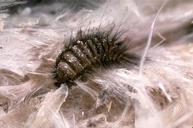Carpet Beetle Tyne And Wear Providing you with the Same Day Service no call out fees 7 days a week
Carpet Beetle Newcastle offer you a professional Carpet Beetle removal Service in Newcastle and surrounding areas. We are a friendly team and all our Pest Controllers are fully qualified, you will also find our prices very reasonable as we are a not a large national company.
Carpet Beetle Newcastle can also be with you the same day for any Carpet Beetle problems you may have and we do not believe in call out charges, the price that you are quoted will be the price that you pay. We talk you through each step of the way and advise how to deter carpet Beetles from your property in the future.

Carpet Beetle Newcastle
Even if it’s just advice that you require on Carpet Beetles, just pick up the phone and give Pest Control Tyne and Wear a call our friendly team will be at hand to help and advise you. A professional and Discreet Service will be offered to you at all times.
Call Our Carpet Beetle Control Team In Tyne and wear Today For Your Appointment On: 0191 462 0024
Or complete our Online Form and our technician will call you back within 15 minutes.
About Carpet Beetles:
The Beetles are fairly small, measuring 1.5 to 4mm in length. The body is strongly convex, rather like the ladybird beetle and is characterised by the pattern of yellow, black and whitish scales on the body.
Between 20 and 100 eggs are laid by the female during spring and early summer on furs, woollens and any dried materials of animal origin.
When the larvae hatch out, they are hairy and brown with three bunches of golden hairs on the abdomen. They normally reach a length of 4-5mm. They tend to avoid the light and, when disturbed, curl up into a ball.
The eggs hatch between 10 to 35 days depending on the temperature. The larvae can last at least a year depending on the quality of the food supply. The adult beetle lives from 7-41 days.
The adults appear in April, May and June and their resulting larvae hibernate during the following winter pupating during the latter part of February and March.
On emergence the adult beetles seek the light so they usually fly to the windows. They fly to light coloured flowers where they feed on nectar and pollen. After mating, the females enter houses during late summer and autumn and lay their eggs in birds’ nests in roof voids and other suitable places. The larvae feed on feathers and wool soiled with excrement.
